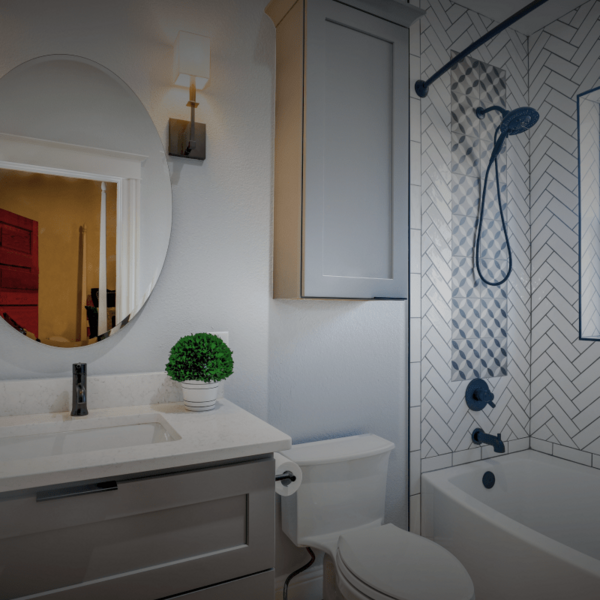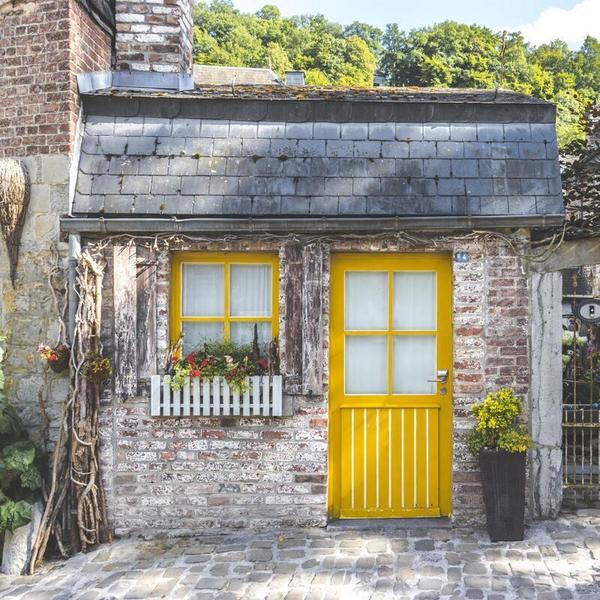Whether you’re looking to downsize your footprint on this planet, build a vacation home in the mountains, start a renting business or simply want to get a roof over your head without getting in debt, building your tiny house is one of the best ways to achieve your dream.
You might be a master craftsman with that oscillating spindle sander and have a ton of DIY magazines in your garage. But when it comes to building a safe and comfortable home that must pass 500 pages of building code, you better leave it to the pros.
Here’s our pick of the best tiny house manufacturers you should add to your address book.
How to choose the best tiny house manufacturer?
Tiny houses might be small but they are still a considerable investment. If you are buying a tiny home, make sure to do your research before going for one builder or another. Here are some of the most important considerations.
Types of tiny houses
There are essentially three types of tiny houses, so before you start talking to builders you need to decide what kind of house you want, and whether the manufacturer has them in their catalog.
- THOW: Tiny-homes-on-wheels are basically large, heavy RVs that are built directly onto a trailer chassis. If you want a tiny house on wheels, this is the best option as you can easily tow it and move it whenever you want.
- Park-ready: This type of tiny house is delivered on wheels as well, but is designed to be more permanent than THOWs. This means park-ready homes are more suited for RV and mobile home parks. They are heavier than THOWs, and you might need a heavy-duty truck to tow them. It’s definitely possible to move them when necessary, but not as easily as THOWs.
- THOF: Tiny-homes-on-foundations are built on permanent foundations such as piers, block walls, etc. They are not designed to be moved, but generally last longer because owners can control the conditions underneath the house.
Custom vs. production tiny houses
You have the option to buy a production-built home based on existing plans or build a custom home based on plans created by the manufacturer.
Each option has its benefits and drawbacks. Prefabricated homes are faster to build and less expensive, but you can design a custom model to have everything you need from the very start. No need to make improvements and remodels in that case.
Some manufacturers also have an option of purchasing a shell that is delivered on the site, and the owner then finishes the house using materials and utilities of choice. To achieve continuous improvement in manufacturing a house involves adopting a systematic approach that focuses on efficiency, quality, and sustainability throughout the construction process.
Price
Obviously, the builder you choose must fit into your tiny house budget. Just imagine — you choose a tiny house over a full-size home, and the tiny home proves a much steeper investment than you thought it’ll be.
You can expect to pay anywhere between $30,000 and $130,000 for a finished tiny house. The price range is wide, as well as the range of available finishes and sizes. So consider your financing options and do your math before entertaining offers.
Shipping area
This should be a no-brainer, but it makes no sense to order a production home from another corner of the country. When your tiny house arrives, it usually comes with a finished interior, exterior, and frame. The only thing you need to do is provide a site on which to place it.
If you don’t want to pay a high shipping fee, make sure that your site is within the builder’s shipping area.
On the other hand, many of these homes sit on trailers, which means either the customer of the company can hire a delivery service to tow the home to its destination, which can be outside the builder’s territory.
Again, this might involve a heavy-duty truck and cost more than you hope for.
Construction time
As the popularity of tiny homes exploded over the past few years, many tiny home manufacturers work double shifts to meet the demand, while some build their custom models one piece at a time.
In either case, you need to know how long it’ll take till you get your tiny home delivered.
Also, any customization that you make means a longer manufacturing process. The builder has to source extra materials, adapt the design and plans, and eventually build the home.
On the other hand, builders who stick to standard plans often keep the most popular models in stock, allowing buyers to get their homes much sooner.
Warranties
Here’s the deal. The smaller the home, the more serious any manufacturing defects or issues. A leaking roof is a nuisance in a traditional house, but in the case of tiny houses, your entire living space is affected.
This is why it’s important you go with a manufacturer that puts a warranty on the home and its utilities.
Most tiny home construction companies offer 1-year warranties on structural and mechanical items. This includes the exterior and framing, roofing material, as well as heating, plumbing, and electrical systems.
For financing options, many individuals turn to VA construction loan lenders, which can help make tiny home ownership more accessible.
After that, all repairs fall on the owner.
However, premium tiny home builders offer longer warranties, sometimes even up to 10 years. These are considered extra purchases but are definitely worth considering.
Alternatively, you should consider some of the tiny house insurance options.
5 Best Tiny Home Manufacturers
1. Tumbleweed Tiny House Company — best shopper experience
Featuring a wide range of styles, an interactive online builder, and breath-taking virtual tours, Tumbleweed is hard to ignore.
This builder is offering an enjoyable shopping experience and a plethora of tiny home styles to choose from, including both modern, contemporary, and traditional designs.
Tumbleweed is offering three types of tiny houses:
- THOW (tiny houses on wheels)
- park-ready
- THOF (tiny houses on foundation)
To streamline the buying process, Tumbleweed starts the customer journey by giving in-depth 3-D tours as a lead verification tool, where future owners can picture themselves in every space within a model.
The interactive guide and quote features give buyers an estimate of what their model might cost even before they speak to the company representative.
Tumbleweed Roanoke
Tumbleweed offers special prices to members of the military, teachers, and first responders.
As the square footage is concerned, Tumbleweed homes are available as 26- and 30-foot models.
Eco-savvy shoppers will be pleased to hear that Tumbleweed has a Certified Green digital badge for responsible building and energy efficiency.
2. Tiny Heirloom — best for unique homes
If you’re looking for a unique tiny dwelling, Tiny Heirloom should be your first stop. This builder employs. collaborative, from-design process, and frequent expert updates throughout the design process.
First of all, you get an absolutely custom design that starts with a blank sheet. No floor plan templates here. From there, you go through a detailed and collaborative 1 on 1 process that ensures you are fully involved in designing the home you want. Still, keep in mind that this type of building commands a premium price.
Tiny Heirloom Heritage
On the other hand, if you’re not 100% sure what kind of tiny home you want, Tiny Heirloom offers production tiny homes, including THOW and park models.
3. Custom Container Living — best sustainable option
If you’re conscious about the environment and sustainability, you’ll appreciate this company’s model of upcycling and refurbishing shipping containers into beautiful tiny house designs.
As many tiny house owners care for the environment, this builder wanted to play that card and breathe new life into lightly used containers. If you plan to power your tiny home on solar panels and install a composting toilet and greywater system, Custom Container Living’s probably got a design for you.
Shoppers can choose from floor plans that include one, two, three, or four containers, which impacts the number of available square feet, while an interactive online design and quote feature gives them a bit of insight into what their shipping container home will cost.
Custom Container Living Double Duo 2-Bedroom
We admit the exterior styling of these prefabricated homes is somewhat limited, but this is offset by quality materials used in the construction.
A big perk of these tiny homes is that the company doesn’t need a foundation to set up your house. In other words they can place it directly on level ground on your land.
4. Mustard Seed Tiny Homes — best modular home designs
If you can’t decide between a small modular home or a tiny home, you should take a look at what Mustard Seed has to offer.
This builder offers a variety of homes on wheels, park-ready, and homes on foundations in styles that cater to every buyer’s preferences.
Their gamut includes modern, contemporary, and traditional home styles, at relatively high prices.
Mustard Seeds The Sycamore
However, Mustard Seed offers plenty of customization options for their base models, so everyone can design the tiny home they imagined.
Want to save some money and get your hands dirty? Mustard Seed’s got you covered with their tiny home shells that are ready for custom finishing.
5. Mint Tiny House Company — best for tiny homes on wheels
Mint Tiny House Company offers several base RV-style tiny homes with plenty of upgrades and customization.
If you’re in the market for a THOW or park-ready home, you should consider Mint Tiny House Company, as each model is available in several sizes and optional design touches to make it stand out.
The company has several unique designs that maximize space and customer satisfaction, as they say, “It’s not about choosing the model that fits your needs, but the one that you truly like the most.”
For example, one model has a gooseneck hitch that allows you to fit a full-size bed at the front of your tiny home. Another model has a double-pitched roof over the loft to maximize the headspace.
Keep in mind that the range of park-ready models is somewhat limited because they need to meet federal guidelines to make them roadworthy.
Mint Tiny House Company Napa Edition
Also, these RV-style tiny homes are not designed for cold climates. They only have an R21 insulation level which is suitable for warm and temperate regions. In a pinch, you can always get a tiny house heater.
Wrapping up
Building a tiny house takes much more than just construction experience. These homes need to be safe both for living and highway transport, so manufacturers use special hardware, tools, and techniques to hold the frame together.
By going with reputable tiny house manufacturers, you get the speed of build, extended warranties, and know-how for executing custom floor plans and designs.


